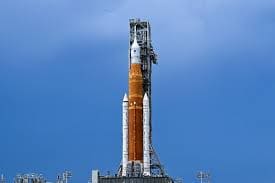
To begin with a fact, we all know that planet Earth is dying. Crumbling under the weight of a growing human population. In the face of Blue Origin, founded by Bezos in 2000, has similar visions, but seeks to be more pro-active in terms of deep space exploration, with it’s Blue Moon program set to take humans to the moon for the first time since 1972, in the next 5 years. Space Explorations Technologies Corp. colloquially looming issues like global warming, rising sea levels, and ever-increasing pollution, we know that it will soon be too late to turn back and save our planet. The question is, where do we draw that line? Where do we decide it is too late for the planet, and that we need to turn to other planets for sustaining the human race? With the advent of new technology, humans can now go further than we ever have. Our fascination with the universe has driven us to go to distant lands and explore new horizons. We have made unprecedented progress, even landed human beings on the moon. In all of this the question that we must ask of the leaders at the forefront of this progress is this: Have we already given up on our planet?Three of the richest men in the world, namely Richard Branson, Jeff Bezos and Elon Musk, have been driven by a similar fascination. An obsession, if you will, with going where no man has gone before. In the early 2000s, all three started companies to help their drive for finding new solutions to the problem of human survival. Branson’s Virgin Galactic, founded in 2004 for developing vehicles for sub-orbital and orbital flights to carry human passengers in space. Blue Origin, founded by Bezos in 2000, has similar visions, but seeks to be more pro-active in terms of deep space exploration, with it’s Blue Moon program set to take humans to the moon for the first time since 1972, in the next 5 years. Space Explorations Technologies Corps coloquoilly known as SpaceX, was founded in 2002 by Elon Musk with the express plan of reducing costs of space transportation to help the colonization of Mars. All three have recently made manned trips beyond the Karman Line into outer space, with high success. While all three companies may have different visions, their initial goals line up against each other and this has served to fuel a space war of sorts. The three have been pitted against each other, with Bezos and Branson making sub-orbital flights recently. SpaceX, meanwhile, has gained key government contracts from NASA, and has recently tested the largest rocket ever built, the Starship, a 33-engine reusable behemoth with ambitions of one day carrying humans to Mars. While these large strides are being made to take humans away from the earth, the original question remains. Should we, as a race, focus on escaping the planet we messed up? Or should we perhaps try to save what remains for as long as possible? If current trends are to be compared, we are leaning towards an escapist view of the question. Somehow, sadly enough, we are destined to leave for the stars and leave this planet behind.
10 Jan 2022
Adarsh Tripathi